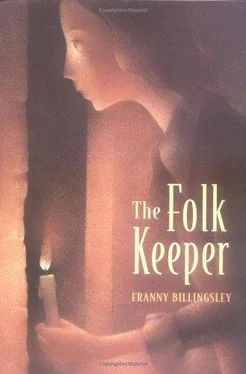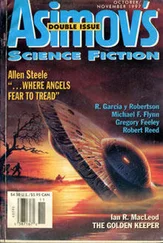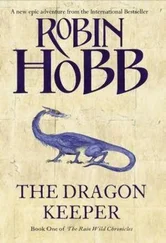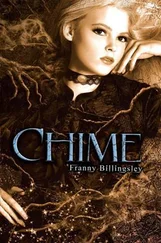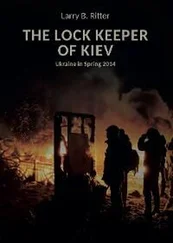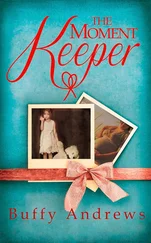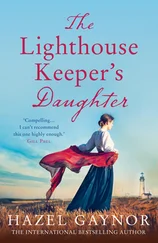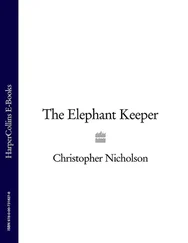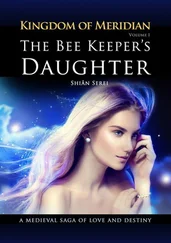Life, life. I smelled it all around. The green sea, bursting with life, from the sea urchins amongst the rocks below to the barnacles and seaweed creeping up the pilings of the pier. The poets always sing of bright blue water, but I don’t care for it. Blue is nothing; blue has only itself to reflect.
All the others in the Manor will be stuffing themselves with eggs on this Sunday. But not I.
I leaned off the pier, casting glances over my shoulder even as my hand darted into the water. Mrs. Bains wants to feed me, but she cannot know what I really want. Flesh, sweet and salty, bursting with life. I threw the entrails to the birds, the skeletons to the sea.
April 17 — Levy Day
The Folk have eaten:
Two roast ribs
Five rounds of cheese
A barrel of smoked haddock.
I do not regret destroying Sir Edward’s prize trophy. I do regret that Finian suspects me. I should have known never to reveal any of my true Convictions. And for what? The Secrets were no good. The churchyard mold failed to work against the Folk. What shall I do come July, during the Feast of the Keeper, when the Folk next grow wild?
8
Beltane Through Midsummer
May 1 — Beltane
Old Francis has disappeared.
He vanished during the Storms of the Equinox, but I learned of it only this morning, when the chapel bells shook us all out of bed and into the meadow behind the Manor. It was lovely in the early light, gathering violets and marsh marigolds for the May Day garlands. Clouds of sheep floated in distant fields, and dandelions lay scattered like spots of sunshine.
Lady Alicia made five garlands, and Finian made three. His big fingers are remarkably nimble. Sir Edward gave a little boy a copper to gather flowers for him, but then even he spread his elegant coattails in the grass and constructed his garlands with the deliberate care he devotes to all affairs of the Manor.
I managed one garland, which might, with luck, fit a head shaped like a triangle.
“Of all the feast days,” said Lady Alicia, plucking at the grass, “Old Francis loved May Day best.” She brought her palm level with her face, then blew the grass into the wind. “These are easy days, he always said. Easy for a Folk Keeper.”
Old Francis? I looked about. He was nowhere among the knots of Manor servants laughing and gathering flowers.
Finian set a garland on my head. “You’ll not see him here. No one’s seen him since the Storms.”
I hadn’t thought of him for weeks.
Easy days for a Folk Keeper. Yes, the Folk are quiet now a long while, today eating only a hogshead of boiled pig knuckles. The May Day garlands are scattered in a circle round the Manor, restricting the power of the Folk to the Caverns. Likewise, during the Masquerade Ball on Midsummer Eve, the Manor will be circled with a ring of burning torches. We do not celebrate Midsummer Eve on the Mainland, but Mrs. Bains assures me this fiery ring will keep the Folk subdued.
These have indeed been easy days. I’ve been busy with Finian, putting the final touches on the Windcuffer. We’ve been breaking in her new set of sails, puttying her cracks and seams with lead-and-linseed oil, and painting her properly, with many thin coats. She dried slowly, gleaming in the spring sun.
The Windcuffer has come alive, just as everything in Cliffsend has sprung suddenly to life. Banks of buttercups shine everywhere, and the hyacinths are making a great show of themselves, each of their leaves carefully combed and curled.
Everything’s come to life, and all this while I never noticed Old Francis was gone. I wish I’d noticed earlier. Then I’d never have worried he’d tell my secret, reveal I don’t have the power of The Last Word. He can’t tell anyone, now.
June 16 — Feast of Saint Jerud, Who Throttled a Sea Serpent
It has taken the Folk all day to eat a mere dozen cheeses, but I rose for breakfast at dawn. There was just a tiny brightening to the east, like the pinkish-gray luster in the lining of a shell. The fish were easy marks, hovering at the surface during their great nightly grazing. I struck again and again.
By the time Finian arrived, I was bursting with Convictions.
I told him the sun shines on the seafloor in a grillwork of fractured light.
I told him the sky is delicately cobwebbed with clouds, that gulls fly over the water like scattered confetti.
“I like these new Convictions,” he said. “How wonderfully you Folk Keepers are schooled. You find the right words to describe the Folk, and everything else, too.”
But no one schooled me. I had to school myself.
I told Finian he owes me two Secrets.
When I read this over, I realize how different I sound from the old Corinna. I’m not turning into a sentimental girl, am I? Swooning over the sunset and dabbing lavender water on my wrists? I must be alert to signs of encroaching softness. I need a new morning routine: clean teeth, wash face, check heart for signs of dry rot. Replace it with good mahogany planking, as we did the Windcuffer. It’ll last a long time.
June 21 — Midsummer Eve
It is half past ten, and there’s still an underglow to the sky. The Cliffsenders boast that on Midsummer midnight you can read without a candle, or play a game of ball, if the ball is white.
I sit on the cliffs, but even here I am not far enough removed from the Midsummer festivities. Why do people do it, having guests to stay for a whole week? First you have to endure the washing of draperies and airing of beds and beating of carpets (all of which had seemed more than clean enough to me). Then you have to endure the hideous chatter of the ladies and gentlemen and their maids and valets; and even beg Cook for a barrel of dried beef for the Folk on this feast day.
You can never get far enough away. Sounds from the Masquerade Ball drift across the lawn. Arching streamers of violin music, the rumble of distant talking and laughter, a happy scream. Someone won at cards, or had her dress trod on, or was kissed!
I stood out from the others earlier tonight when I entered the Ballroom in my Samson costume. Yes, I dressed as Samson, he of the long hair. We are a little alike, he and I, for our hair sets us apart. His gave him strength, and mine — well, it is inconvenient that it grows two inches each night, but it is one of my secret powers. Not for anything would I give it up.
My white tunic was very plain among the jesters and their bells, the wizards and their staffs, the fairies and their jewels, fragile shoulders rising from beds of ribbon and gauze. But my costume hid more secrets than theirs. So did my hair, which I’ve grown to my chin and colored with a walnut stain. I seem to be wearing a wig. No one would guess it’s mine. I like to be fooling them all.
Midsummer Eve is my birthday, and there is one disappointment that has come with turning sixteen. I seem to be starting to grow. I can wear the tunic and still be thought a boy, but not for long, perhaps. Not for long.
I slipped round the edges of the crowd, avoiding the crystal chandeliers, whose hundreds of candles were already dripping hot wax. Poor Mrs. Bains. I knew her armies had spent hours polishing the Ballroom floor with beeswax and cleaning the chandeliers until each crystal was beautifully radiant.
A footman handed me a glass. Tiny lines of bubbles streamed through pale liquid. The fiddle cried out in a language that everyone but I understood. Like pieces of a kaleidoscope, the ladies and gentlemen fell into patterns of color on the Ballroom floor.
I slipped out the French doors; dancing is not for me. The indoors and out-of-doors were all mixed together. Armfuls of ivory roses bloomed everywhere inside the Manor; outside, an immense Oriental carpet suffocated the lawn — or so I heard the gardeners complain. On it stood a long buffet table, at which Mrs. Bains was counting bottles of champagne in a hollow ice-swan.
Читать дальше
